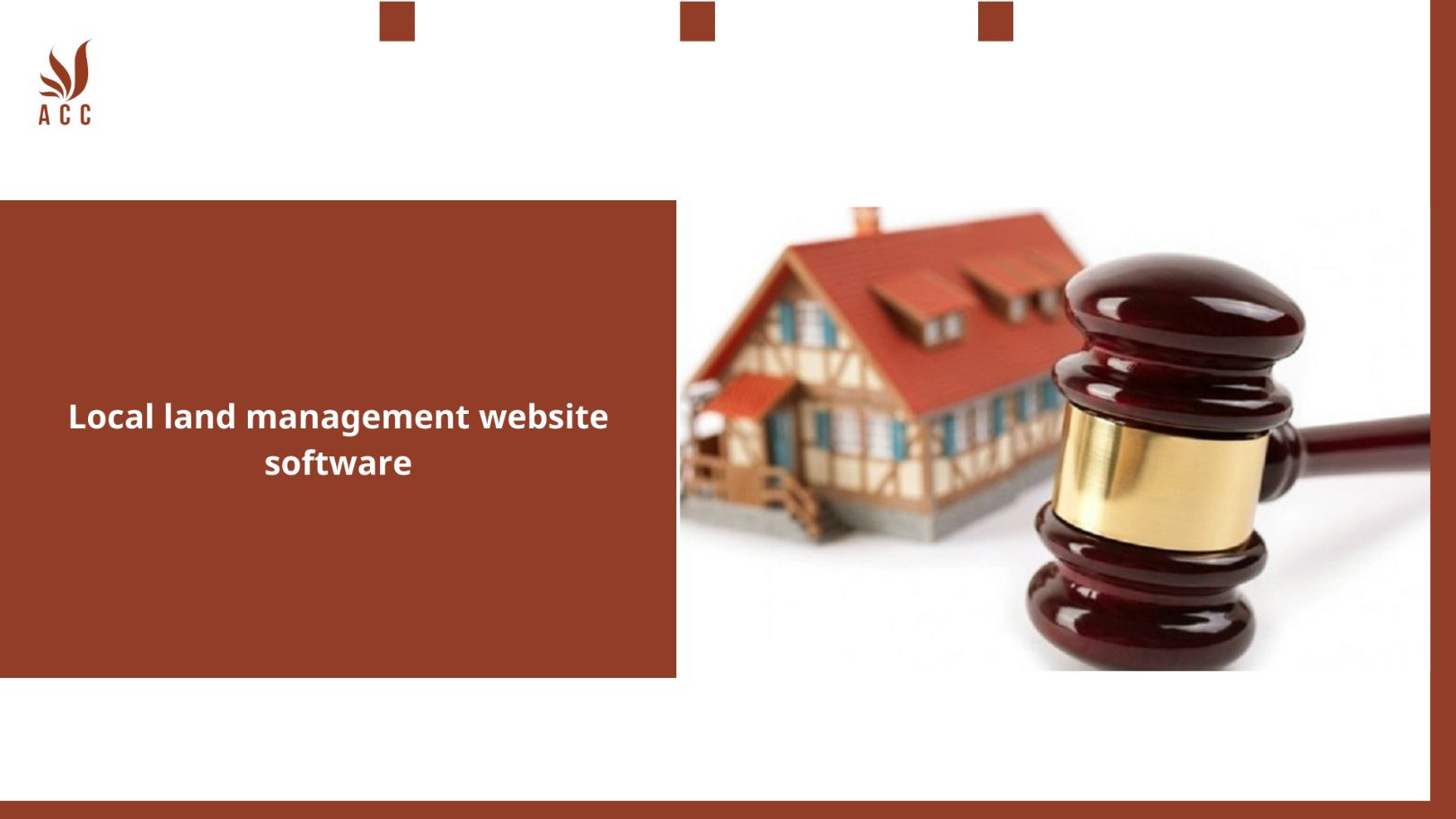Local land management websites and software are tools used by local governments, organizations, and communities to manage, regulate, and provide information about land use, property, and land-related services. These platforms can serve various purposes, from land records management to land use planning, permitting, and public engagement. Here are some common features and components often found in local land management websites and software:

1. Property Records Database:
This database stores information about land parcels, property owners, land use, assessments, and tax records.
2. Geographic Information System (GIS):
Integrating GIS technology allows users to visualize and analyze land data through maps, spatial analysis, and geospatial information.
3. Permitting and Zoning Information:
Provides information on land use regulations, zoning codes, and allows users to apply for permits, such as construction permits or rezoning applications.
4. Online Payments:
Enables online payments for property taxes, fees, and permit applications, streamlining financial transactions.
5. Public Engagement:
May include tools for public engagement, such as surveys, feedback mechanisms, and community forums related to land management and development.
6. Document Management:
Stores and provides access to land-related documents, such as property deeds, land surveys, and legal documents.
7. Workflow Management:
Supports the management of land-use and permitting workflows, including application processing and approvals.
8. Integration with Other Systems:
Integration with other government systems, such as tax collection, land assessment, and financial systems, to ensure data accuracy and consistency.
9. When using ACC Law Firm's land-related services, entrepreneurs will receive
When using ACC Law Firm's land-related services, entrepreneurs will receive expert advice and assistance in navigating various legal aspects of land ownership and transactions. This includes guidance in property acquisitions, leases, zoning regulations, land use planning, and any other land-related legal matters. ACC Law Firm's team of experienced attorneys will provide personalized support to entrepreneurs, ensuring compliance with applicable laws and regulations, protecting property rights, and optimizing the value of their land investments.
10. Q&A
Question 1: What is local land management website software?
Answer 1: Local land management website software is a digital platform designed to facilitate the management of land-related information and services at the local or municipal level. It allows local governments and authorities to provide access to land records, property information, and land-related services to residents and stakeholders through a web-based interface.
Question 2: What are the typical features of local land management website software?
Answer 2: Typical features of local land management website software may include:
- Online access to land records and property information.
- Land use planning and zoning information.
- Application submission for land permits and approvals.
- Tools for property owners to pay property taxes and fees.
- Interactive maps and GIS (Geographic Information System) integration.
- Reporting tools for land-related issues and concerns.
Question 3: How can local governments benefit from using land management website software?
Answer 3: Local governments can benefit from using land management website software in several ways:
- Improved transparency by providing easy access to land-related information for residents.
- Enhanced efficiency in processing land-related transactions and applications.
- Better data management and analysis for land planning and development.
- Cost savings through reduced administrative work and paper-based processes.
- Increased citizen engagement and satisfaction by offering online services.
Question 4: Are there specific security and privacy considerations for local land management website software?
Answer 4: Yes, security and privacy considerations are crucial when implementing land management website software. Local governments must ensure data security, user privacy, and compliance with relevant data protection laws. This includes using encryption protocols, access controls, and regular security audits to protect sensitive land-related information and user data. Additionally, clear privacy policies and terms of use should be in place to inform users about data collection and usage.
Nội dung bài viết:






Bình luận